|
“Out of darkness, God has called us, claimed by Christ as God’s own people. Holy nation, royal priesthood, walking in God’s marvelous light.” -Christopher Walker, Out of Darkness At some point or another, almost everyone lives in one kind of darkness. For some, that darkness can come with the loss of a loved one or a job. For others, darkness can creep into our lives when we move for a job, start college, have an unexpected medical diagnosis, or just seem to have everything go wrong in our lives. Right now, we are all living in the shadows and darkness of another kind—one that includes loss of life and jobs, but that is also much more. The current pandemic seemingly brought darkness upon the world just as we got ready to celebrate the Sacred Triduum, three days that culminate in our proclamation that Christ is the light of the world. The darkness, for many, is made even darker without being able to go to church, without a physical community of faith, and without the reception of the Eucharist. And yet, as St. Peter said in his epistle, we are all “‘a chosen race, a royal priesthood, a holy nation, a people of his own, so that you may announce the praises of him who called you out of darkness into his wonderful light.” (1 Pt 2:9). We are called to live in the light, not in the darkness that we find ourselves in. Right now, that may seem impossible. The light seems to be out without a definite end in sight. , I have been lucky over the past few months to be not only living in community, but to also have regular access to the celebration of the Eucharist. Mass is celebrated daily at the seminary, so my own personal darkness does not include the absence of a community or the sacraments. For me, darkness creeps in as a result of not being with those I love. I couldn’t go to visit my family in New York in between the end of the semester and the beginning of my summer assignment. I am limited to phone calls here and there with those I love, and the occasional FaceTime video with my goddaughter and her brother. This has been my own personal cross to bear, but it’s one that I know has made me appreciate the people in my life more than I did before the outbreak of the novel coronavirus. But there are other things that are hard too, especially right after Archbishop Aymond suspended public Masses in New Orleans. Other things such as this have entered into my own darkness and tried to snuff out the light of Christ. In the Eucharistic liturgy, right before the distribution of Communion, the priest, holding the Body and Blood of Christ, says “Behold the Lamb of God. Behold him who takes away the sin of the world. Blessed are those called to the supper of the Lamb.” But, right now, those called to the supper of the Lamb can’t come. To pray this prayer, to hear this prayer every day, is not easy to hear while many of the people of God aren’t able to be nourished through the Eucharist. This chosen race is wandering in the desert, seemingly alone. And yet, Jesus is there with us in our tombs. He is there with us in our darkness. He is there with us--waiting to bring us out of that darkness into the wonderful, marvelous, light. God is with us even if we can’t seem to pray right now. God is with us even if we can’t receive him physically right now. God is with us even if all we can do is yell and cry with despair and loneliness. God is always with us, preparing the dwelling place for us, his chosen race, his royal priesthood. And so, as we dwell in our darkness, let us remember that we are made for more. We are made to live as the children of the light, not as the children of the darkness. Jesus entered the tomb as a dead man and walked out of it alive. Let us pray, in a special way, asking Jesus to enter our darkness. That we, his chosen race, his holy people, his royal priesthood, may no longer dwell in darkness, but in his wonderful light. Out of the darkness of missing the Eucharist, God is calling us. Out of the darkness of loneliness, God is calling us, for we have been claimed by Christ. Out of the darkness of uncertainty, God is calling us, for we are his own people. Out of the darkness of sadness, God is calling us, for we are to live in his marvelous light “Out of darkness, God has called us, claimed by Christ as God’s own people. Holy nation, royal priesthood, walking in God’s marvelous light.”
0 Comments
"Humanity will never find peace until it turns with trust to Divine Mercy" (Diary, p. 132). Here we are, with Divine Mercy Sunday this weekend, and instead of being in our churches with our communities, we are at home figuring out how to make this day still sacred. What do we do? Have we entered into the joy of this holy Easter season in the Church, or are have we fallen into despair that we remain in this time of “shelter in place”? Maybe it’s both? For me, I was sort of giving God an ultimatum during the Lenten season: “Lord, we will endure Lent separated from our communities, but shouldn’t you show your power and end all of this when Easter comes?” I have truly wrestled with embracing our new normal at home and fully entering into the joy of the Resurrection—the joy that comes from knowing I have been freed from the bondage of sin and death although it’s completely undeserved. We know this physical separation during the coronavirus pandemic is a way to love our fellow man, and we embrace it for the sake of love. Yet still, have our hearts embraced the message of Divine Mercy? When the message of Divine Mercy was given to Sister Faustina (and then to the world), the world was in a terribly dark place: war, hatred, and brokenness abounded. Jesus knew the world needed hope, a reminder of the infinite love He has for humanity, and to trust in His Mercy. And now, here we find ourselves in a different kind of darkness—a darkness of disease, isolation, blame, and fear. And still in this time and in this place in which we find ourselves separated from our communities, away from our physical Churches, and isolated in our homes, the Lord has gifted us the beautiful message of Divine Mercy. As Bishop Robert Barron said, “Into all the dark corners of our human experience, God’s mercy has come.” The message of Divine Mercy reminds us that no matter how dark it is, or how deep our sin runs, Jesus’ great love for us is greater still! He has defeated sin and DEATH. What more can we fear? He desires to be with us, for us to embrace Love itself. Divine Mercy is summarized by Jesus’ first words to His disciples after returning from the dead: “Peace be with you” (John 20: 19). After greeting his disciples this way, he says it again: “Peace be with you” (John 20: 21). The disciples, like us, needed to embrace the message Jesus brought, a command of peace and trust. When we trust, surrendering our hearts and lives to the one we are meant for, true peace reigns. Peace that cannot be stolen by disease or fear but that is rooted in our identity as beloved sons and daughters of the one who can conquer all things, even death. As we prepare to celebrate the Feast of Divine Mercy, may we surrender ourselves to Jesus, embracing the message of Divine Mercy— that His love on the cross, His resurrection from the dead, His love for me and for you can truly reign over our world in a time of uncomfortable uncertainty. Let us shout with joy, “Jesus we trust in you!” and allow His peace to rule in our hearts once more. The ashes of our Lenten journey were more pronounced this year—not fading with Ash Wednesday but thickening in the following weeks with the outbreak of COVID-19. Each of the plans we had for Lent—the sacrifices, the resolutions, the acts of charity—were rearranged, making room for more sacrifices than we thought possible. We sacrificed control, physical freedom, the assurance that our pantries would be stocked or that our bank accounts would be replenished. We sacrificed our physical friendships, birthday celebrations, anniversary milestones, family vacations, date nights. We’ve lost friends, family, or neighbors to a virus that until a few months ago was hardly known about or discussed. We’ve sacrificed our liturgical lives, being able to receive Christ’s Body and Blood in the Eucharist, attendance at weddings or baptisms, pastoral formation, the journey into the Church on Easter via RCIA. Pope Francis likens this pandemic to the evening storm experienced by the disciples in the boat, saying, “For weeks now it has been evening.” This evening has been long, dark, full of the unknown. Throughout this “evening,” we have had to confront our vulnerabilities and experience our littleness. We’ve had to realize that without light, we cannot see. Perhaps we’ve grappled with fear in this darkness—a fear of the unknown, a fear of isolation, a fear that the dawn may never come. Perhaps our minds have been left to imagine: Lord, “Do you not care that we are perishing?” This time of quarantine, social distancing, and pandemic has been our evening storm which, “Exposes our vulnerability and uncovers those false and superfluous certainties around which we have constructed our daily schedules…shows us how we have allowed to become dull and feeble the very things that nourish, sustain and strengthen our lives and our communities… [and] lays bare all our prepackaged ideas and forgetfulness of what nourishes our people’s souls.” We thought “we would stay healthy in a world that was sick,” but the storm has awakened us from our personal slumber. And we need light. This realization is the seed of faith—a faith which recognizes the need for salvation, for one another, for the light of God. The realization of our littleness, our helplessness, our dependence, our mortality, is the perfect place from which to enter into the Triduum and await the lighting of the Easter candle—the Resurrection of Jesus Christ. God has provided flickers of hope, reflections of grace, throughout our journey at sea: livestreams of Masses, daily Scripture reflections, broadcasts of Adoration, priests hearing Confessions in drive-thrus, virtual retreats, Pope Francis’ blessing of the entire world. We have seen a “creativity of love”--the production of ventilators in car factories, the making of masks in workplaces, the donations of money, food, and supplies across the world, the video chats to those in quarantine facing death alone. We see dancing from porch balconies. Teddy bears in windows. Embraces in hospitals. Birthday drive-bys with signs and honking. People on their knees. Yes, the light of Christ exists even in the darkness. And the darkness has not, and will not, overcome it. It will shine ablaze all the more radiantly this year in the midst of our utter darkness, sparkling in the gloom. The darker the night, the better able we are to see the light. And in the darkness, we look up. Let us welcome the light of Christ this Easter by first lighting his love in our hearts. When Christ’s life lives within us, we can enkindle it in the souls of others and set alight all we encounter. “Prayer and quiet service: these are our victorious weapons,” Pope Francis reminds us. Wake up, Lord! The disciples shouted in the midst of the storm. Wake up, Lord! The world shouts again today. Let us awaken the Lord through our prayers and service. Through our acts of charity to those suffering, tired, or scared. Through our cries and supplications. Through our fasting in these unwelcome sackcloths and seemingly perpetual ashes. Cry out with me again this Triduum, “Wake up, Lord! We are perishing.” Christ’s response to our cries this week is open arms embracing us through nails and scourging. His response to our cries is a head beaten, bruised, and crowned with thorns. His response to our cries is silence to jeers, taunts, mockery, and abandonment. His response to our cries is the relinquishing of his spirit in atonement for our sins and those of the whole world. He who cried out to his Father, “my God, my God, why have you forsaken me?” also knows the darkness intimately. He knows what it feels like to be alone and perishing. But by his words do we find the light: “Why are you terrified? Do you not yet have faith?” ….“My Father…not as I will, but as you will.” Our cries are never unheard. “The Lord awakens so as to reawaken and revive our Easter faith,” Pope Francis said. “We have an anchor: by his cross we have been saved. We have a rudder: by his cross we have been redeemed. We have a hope: by his cross we have been healed and embraced so that nothing and no one can separate us from his redeeming love.” The goal of our Lenten journey is transformation—to be transfigured. This is also our prayer throughout this pandemic. Yes, we pray that it ends, that healing comes, that daily life can resume, that economies will be restored, and that suffering will cease. But even more than all of that, we pray for transfiguration. Because when we are transfigured by the love and light of Christ, when our faith has awakened and we have realized our need for salvation, then the storm can rage on while we rest knowing we will not perish—for we will know deep in our hearts that with the “dawn there is rejoicing.” Then, and only then, “In the silence of our cities, the Easter Gospel will resound.” For more Easter and Lenten resources, please click here. For more resources and reflections on COVID-19, please click here. A month ago, I thought I would be balancing returning back from a service immersion trip and student leadership interviews. Today I sit in my makeshift home office preparing for my next Zoom call, trying to keep in check my own anxieties while still ministering to my students. To be honest, the first week was not easy, and I have still not mastered ministry from home and social distancing. As the days continue, I have progressively realized my need to change my mindset of survival to finding peace, stability, and hope. I went to Thomas Merton and St. Teresa of Avila, my two go to’s when needing to be reminded of where to find God. As I read the words of this Trappist monk and Carmelite nun, it dawned on me that in midst of darkness, fear, and chaos, I have been given an opportunity to create an inner monastery. The lives of these monastic friends of mine shed light on three aspects that I trust and can incorporate into my social distanced day-to-day in order to give me peace and calm my anxieties.
I invite you to share in the wisdom of the monastics and find the opportunity during these challenging times to create within our homes and families an inner monastery. Fears, sickness and hardship won’t be removed, but the insights of our brothers and sisters who have lived this life before us can help us to “recognize the possibilities and challenges offered by the present moment, and to embrace them with courage, faith and hope.” If you find it helpful, here is my Inner Monastery Routine. Finding balance will look different for each person, so take what works for you and make adjustments to fit your needs.
It might be frightening to look at our culture today. There is the sense that a Catholic worldview is not welcome. Some feel confusion about what it means to be Catholic. A culture of death and darkness seems to oppose God’s love. One wonders how the Holy Spirit will work in the world and through the Church amidst such hostility and division. This is not the first time the Church has encountered such a moment. The 1500s were also a tumultuous era. At the beginning of the century, in, 1517, the Protestant Reformation started. Then the English Reformation of Henry VIII began in 1534. The Church responded with the Counter-Reformation. A new order, the Jesuits, was founded in 1540 and in 1545, the Council of Trent was initiated. By that time, millions of people had left the Catholic Church. It seemed to be a time of waywardness and chaos. How was the Holy Spirit going to work in such a world? Simple: By sending the Mother of God not to the Old World—Europe—but to the New World. Specifically, Mary appeared at the Hill of Tepeyac in 1531 to ask a 57-year-old peasant named Juan Diego to speak to Bishop Zumarraga about building a chapel in her honor there. This is where Our Lady, on December 9th, made her first apparition to her “Juanito” or “dear little Juan.” She told him that she was “the perfect and ever Virgin Holy Mary, Mother of the God of truth through Whom everything lives, the Lord of all things near us, the Lord of heaven and earth.” On her last visit on December 12th, Mary arranged roses in Juan Diego’s tilma and sent him to the bishop to ask him again to build a shrine to her on that spot. When he opened his tilma to show the bishop the roses, it revealed her image, which can still be seen in the Basilica of Our Lady of Guadalupe in Mexico City. Mary appeared on a hill that was already sacred to the ancient peoples of Mexico as a shrine to a mother goddess. She was dressed as an Aztec princess, pregnant with the God who made us. She spoke to a humble native of the land and called him her “youngest and dearest son.” Before her apparition, approximately 200,000 Native Americans had been baptized. Between the time of her visit to Juan Diego and her message to Bishop Zumarraga and their deaths in the spring of 1548, over 9 million ancestral peoples had received the gift of faith and baptism. In a time of great conflict, colonialization, and racial tension, Mary appeared on this continent to tell Juan Diego, “I am truly your merciful Mother, yours and all the people who live united in this land and of all the other people of different ancestries, my lovers, who love me, those who seek me, those who trust in me.” She is the mother of all the peoples in the land, then and now. She reminds us that what truly defines us is not our status or ancestry, but our membership in the Body of Christ. It can be a struggle to know and act like a member of Christ’s Body when there are so many opposing forces. What does it mean to act like a Christian, vote like a Christian, shop like a Christian, or even speak like a Christian? It means that we take our fears, our sorrows, our hopes, our hurts, and our weeping not to a political party or an outlet mall; but to our Mother, who in turn presents them to her Son. Am I not here, I, who am your Mother? Are you not under my shadow and protection? Am I not the source of your joy? Are you not in the hollow of my mantle, in the crossing of my arms? Do you need anything more? -Our Lady to Juan Diego Question for Reflection: In times of distress, do you turn to Our Lady to bring you closer to Christ? When they had gone ashore, they saw a charcoal fire there, with fish on it, and bread. Jesus said to them, ‘Bring some of the fish that you have just caught . . . Come and have breakfast.’ –John 21: 9-10 Easter is a season of renewal, wonder, and awe. The light of Christ conquers darkness, and new life overcomes sin and death. Hope lives, as Fr. Frank wrote, and “We are called to see with the eyes of faith in Christ.” Excitement wells up in me around this time every year when the world is waking up – new blooms appear on trees and in gardens while the sunlight lasts longer each day. Even more exciting than this change in nature is the joy that comes from the Easter Vigil, when the Church welcomes new members and we renew our baptismal promises. As the earth awakens each spring, this liturgical season also invites us to wake up to Christ’s triumphant love. The Gospel readings following Easter Sunday and the Easter Octave are cherished stories and intimate encounters with Jesus. He appears to his disciples when their eyes are still bleary from what happened on the Cross. He has indeed risen as he said. They are called to see and to not be afraid, to touch his wounds, and to ask him questions. One such story occurs before Jesus asks Peter if he loves him. Jesus first directs the disciples to an overwhelming catch on the Sea of Tiberius after a long night of unsuccessful fishing. Their nets overflow. They do not recognize him at first until this moment. Then, John tells Peter and the others, “It is the Lord.” Peter impetuously jumps out to join Jesus while the others row ashore. Sitting at the charcoal fire with fish and bread, Jesus invites the fishermen to come and eat breakfast. I imagine this moment filled with wonder and awe. The disciples will now be “fishers of men,” following Christ’s example and listening to his voice. In the forty days after his Resurrection, Jesus prepares his disciples for their new life of faith and evangelization. Like a dear friend, he gives them advice, teaches them, and even cooks for them. The meal on the beach must have tasted wonderful! This scene is a gift to the senses, like the coming of springtime and the exuberance of the Easter Vigil. What would it be like to be one of the disciples on that beach at daybreak? The cool breeze and the smell of fire caught up in the air, the morning colors dancing in the sky from the sunrise, the feeling of contentment the disciples must have had after catching so many fish, their weariness from a long night, and the sound of Jesus’ voice giving gentle direction. What would it be like to recall all the times you sat with him, to remember the day of his death, and then be present with him and eat fish and bread? This moment on the beach is an intimate encounter that we are also called to experience after the events of Holy Week and throughout all of our lives. During this fifty-day season, I invite you to listen, to sit, talk, and eat with Jesus on the seashore. Reflection Question: What signs of Easter have you noticed springing up in your life since Holy Week? How will you share and enjoy them with Jesus? We walk amidst the shadows and call them life. We’re so accustomed to the dimness of this world that light is too abrasive. It burns rather than warms, offends rather than illuminates. We stumble around in the fog, thinking we are dancing. It’s like looking in the mirror and confusing the reflection with the person. Many things prevent us from truly seeing ourselves—from knowing who we are, from where we’ve come and where we are going. We’ve convinced ourselves that we are comfortable. “Comfortable” is our best friend. It doesn’t demand much of us, doesn't pry, doesn’t ask us to change. It leaves us quite alone, minds its own business. Comfortable—a makeshift refuge amidst the vast discomfort of the world we face each day. Comfortable—the often elusive goal of our lives. Comfortable—a concession to a fate that is not our true end.
Peter, James and John were comfortable in their lives before a rabbi from Nazareth invited them to drop everything and follow him. Their lives were not inherently sinful; their occupations were worthy. Life seemed good. These men were comfortable until they met the Christ who called them to something more. While the high calling Christ invited these men into was glimpsed throughout Jesus’ entire ministry, it is most fully revealed on earth in an apocalyptic way in the Transfiguration of Christ. As the Gospel tells us, soon after Peter’s profession of Jesus as the Messiah, Jesus takes Peter, James and John to the top of Mt. Tabor. Once there, Jesus is transfigured before them, “his clothes became dazzling white. Then Elijah appeared to them along with Moses, and they were conversing with Jesus (Mk 9: 3-4). His apostles are terrified. They have seen something almost greater than they could physically behold. Next, they hear the words of God the Father, “This is my beloved Son. Listen to him” (9:7). They have been confronted by light, the Eternal Light of God himself, and are roused out of any makeshift comfort they had created for themselves. The apostles were uncomfortable, puzzled, amazed. What does the Transfiguration tell us? First, that this luminous state is our destiny. As baptized Christians, we are called to be fully transfigured into Christ himself, shedding anything in our being that does not reflect his light and love. This capacity is already within us, though we diminish it with sin. Second, the Transfiguration shows us that comfortable is not enough. It is neither the goal of the Christian life, nor what we were made for. The Transfiguration instead shows us that we were made for greatness and excellence even amidst the discomfort of our world. We were never made to settle, just as we were never made for the fog, darkness or failure many people accept as daily life. Instead, Christ invites us to love. The Transfiguration is a testament to this love, for this transfigured destiny is only made possible because of his sacrifice of love on the cross. The Transfiguration is pure gift and mercy. And we can begin to be transfigured now, today. To be transfigured, we are called to imitate Christ’s love. This is an uncomfortable love that demands all of who we are. It is love that evaporates our egotism, that hurts, that pushes us out of ourselves and into the lives and well-being of others. Love that we have to practice, and will fail at, again and again. Love that is, and will be, crucified. But love that is worth it. Love that reminds us who we are and why we’re here. Love that takes us from the shadows and actually calls us to dance. Love that breaks through the fog and never diminishes. Love that is the true light. Love that transfigures. As today’s reflection from Magnificat says, “The Savior begs: ‘Become what you behold!’” Kate Flannery is the Social Media Coordinator for the Catholic Apostolate Center. Let’s face it, trudging along in our daily lives can be dull sometimes. One must try, even if the thought is just a curious leap of the soul, to remove oneself from the business of the world and to look up at the sky. We must look up in the sky toward a marvelous sight, the light that propels life on this earth, the face of the creation, and the Creator of beauty.
In all areas of darkness, light abounds brighter than ever. In all things, we exist and share in our lives with our Creator. Everything we do is profound in its own small way. Everything that happens, happens with and for a purpose, with and for a cause, ever meaningful and ever present in our lives. Our lives are living, never truly dying. We will always have the light to look toward. The hope that always lets us know we are never truly alone in anything we do. We must rise into the light in this very moment. This is what the fires of Pentecost are about. We must remember to put action into the journey of the disciple in sharing the truth and love of God in the world. It is waiting for the passions of our own lives to pass and form into one focus of love, pure and true. We are waiting for love, preparing for love, being there for love, attending to love, sacrificing for love, yet we must always remember that we ARE Love. We, as beautiful reflections of the heart of God can illuminate the darkness not only in our own lives, but in others as well. We can be beacons of light, shining bright for others to see. Light is what draws us to the Heavens on a day with a clear sky. It is what makes us wonder at the millions of stars bursting in radiance in the night. It is what can illuminate any darkness no matter how small the flame may be. The light we see in the Sacraments passing from Christ into His people is nothing short of a miracle. The light we witness on the Cross, expelling all sin and darkness from our twisted up hearts, brings us closer to the very nature of love, the deepest kind of love, the love of Christ. In Him I see my guiding Light and my strength to carry on each and every day of my life. He is my starlight in the dark of the sky, letting me gaze of his majesty. In everything, there is light. It is truly present infinitely in our universe. There is a place for us in the skies with the Father, for we, in this world, will rise a stronger people, ready to take up the mission of light, the mission of love, and the mission of hope for all who are searching for something, anything that can fulfill a restless heart. William Clemens is an Undergraduate Student of Theology & Religious Studies at The Catholic University of America in Washington, D.C. Be sure to check out Pope Francis' latest encyclical, Laudauto Si, and visit the Catholic Apostolate Center's Laudato Si Resource Page! “For in hope we were saved. Now hope that sees for itself is not hope. For who hopes for what one sees? But if we hope for what we do not see, we wait with endurance.”
-Romans 8:24-25 (full passage found here) In this passage and throughout his letters, St. Paul directs us through (not around) the darkness of suffering into the great light of faith that brings hope to those who know and love Jesus Christ. In his letter to the Philippians, he urges us to offer everything, especially our sufferings, with the hope of conforming our lives to Christ’s own sufferings so that we might in turn be conformed to His resurrection. “For creation awaits with eager expectation the revelation of the children of God; for creation was made subject to futility, not of its own accord but because of the one who subjected it, in hope that creation itself would be set free from slavery to corruption and share in the glorious freedom of the children of God.” - Philippians 3:8-10 My wife and I recently suffered through the pain-filled loss of a miscarriage. When we first heard the news we were absolutely devastated, heart-broken to say the least. Living through this experience, made me painfully aware of the fragility of life, especially life in the womb. In fact, later that evening I was scheduled to direct a pro-life youth rally for the 40 days for life. I couldn’t fathom how someone would actually voluntarily take a life from the womb of its mother. I believe this experience has caused me to suffer twice as much heart ache. I am terribly saddened because of our loss and terribly saddened because of the realities of abortion. With nothing save our Faith to comfort us and in holy surrender, my wife and I offer up our baby’s life for the conversion of hearts, especially for those considering abortion. A few weeks ago, I was praying across the street from a Planned Parenthood abortion facility when I noticed a young woman sitting in her car that was parked next door in front of the pro-life pregnancy resource center. However, I knew on this particular day of the week, the center was closed so I wondered who she was and if she needed help. After a brief interior struggle as to whether or not I should approach her car and speak with her I started walking towards her. I had been to Mass earlier that morning and I remember asking our baby, whom we named “Charlie,” to intercede for women in crisis pregnancies. I didn’t put two and two together while I was experiencing all of this but my prayer was about to be answered. The young woman in the car was in crisis and nobody, except me (and Charlie), was around to help her. I introduced myself, told her who I was (pro-life advocate) and that I was there to help her find the assistance she needed. I was able to lead her to another resource center that was nearby and assured her that there were people in this community that would be with her and support her every step of the way. I thanked her for choosing Life! For St. Paul, it is through the great acceptance of or rather surrendering to (and patiently enduring) life’s suffering, that we obtain the imperishable and eternal crown of victory (c.f. 1 Cor 9:25); a victory in his faith-filled eyes incomparable to the passing experiences of a lifetime no matter how grave. For it is true, no-thing compares to the glory that awaits us; for eye has not seen and ear has not heard what God has ready for those who love Him (c.f. 1 Cor 2:9). Bart Zalvetta is a member of the Theology Department of Skutt Catholic High School in Omaha, Nebraska One late evening on a camping trip in 3rd grade, my dad and a family friend, Mr. Stroude, took my Girl Scout troop out on a nature walk. We weaved along the path through the woods, giggling with our flashlights dancing around the dirt and moss and trees, until the adults stopped us and asked us to turn off our flashlights. As our eyes adjusted, we realized that we had neared the beginning of a long floating bridge across a large marsh. I say “the beginning” because the length of the crossing and the darkness of the Indiana country meant that, even with my 20/20 vision, I could only see to about the middle of the bridge.
Mr. Stroude proceeded to walk out onto the bridge and soon melted away into the darkness at its center. My dad then explained to us that if we wanted to continue, we would have to walk across the bridge individually, without our flashlight, and meet Mr. Stroude on the other side. “WHAT?!?” More than a little terrifying, Dad! I wasn’t alone in that sentiment. All of us were frightened of the potentially infinite (but definitely creaking) bridge and the murky water beneath it, but no one really wanted to turn back when others might go on without her and see wonderful sights. Eventually, I mustered my courage and stepped out over the marsh into the darkness. I am about to step out onto another bridge, the end of which is covered in darkness. I will soon finish my two years in the Echo program through Notre Dame, and I cannot yet see where God is asking me to go. I cannot see whether I will pass the comprehensive exams for my master’s degree at the end of the summer. I cannot see whether I will have a job come the fall, or even what kind of job may present itself. I cannot see where marriage fits into my future. I cannot see how my relationships will hold up when I move to a new city and leave this community behind. As I pondered all these unknowns, this story from my memory and this prayer from Thomas Merton kept coming forward: My Lord God, I have no idea where I am going. I do not see the road ahead of me. I cannot know for certain where it will end. Nor do I really know myself, and the fact that I think that I am following your will does not mean that I am actually doing so. But I believe that the desire to please you does in fact please you. And I hope I have that desire in all that I am doing. I hope that I will never do anything apart from that desire. And I know that if I do this, you will lead me by the right road though I may know nothing about it. Therefore will I trust you always though I may seem to be lost and in the shadow of death. I will not fear, for you are ever with me, and you will never leave me to face my perils alone. The process of crossing these bridges was and will be a matter of trust. I trusted that my dad would not have asked me to walk a bridge that would not hold me, and I had to recall that trust with each ominous creak. I will trust that Christ is doing the same. I trusted that Mr. Stroude had walked the bridge before me and had already confronted the fears inherent in doing so, and was waiting on the other side, even if I could not see him. I will trust that Christ is doing the same. Of course, I found that each time I reached the darkest part of the bridge, it was no longer completely dark, and there were at least a few more steps to see - enough to allow me to keep walking. I will trust that Christ will show me enough of what’s next to let me keep moving towards Him. Laura Berlage serves as an Echo Faith Formation Apprentice in the Diocese of Camden, NJ... for now. |
Details
Archives
July 2024
Categories
All
|
About |
Media |
© COPYRIGHT 2024 | ALL RIGHTS RESERVED

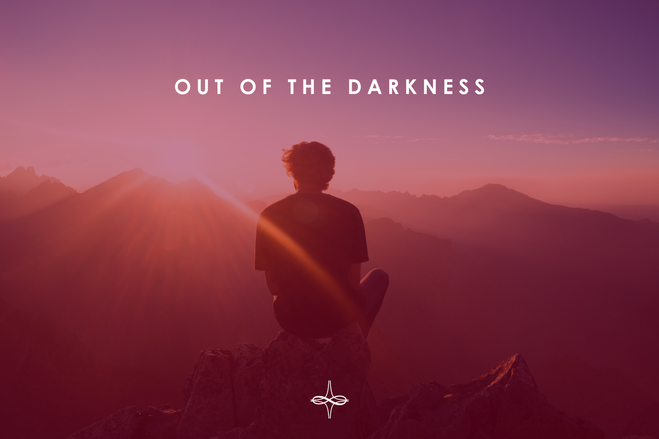
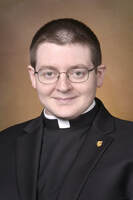
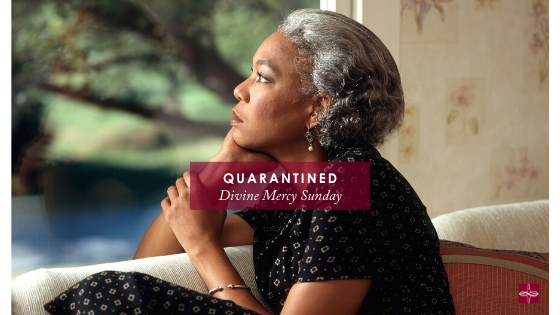

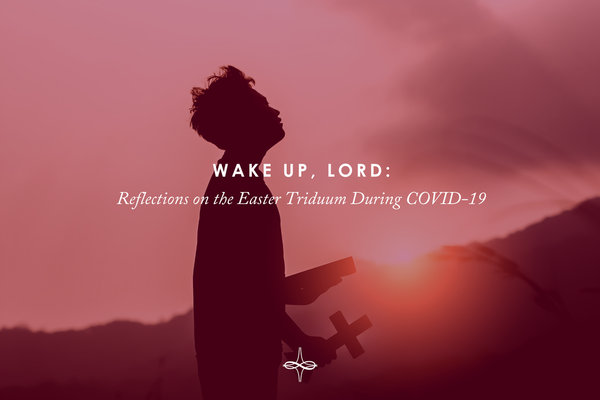
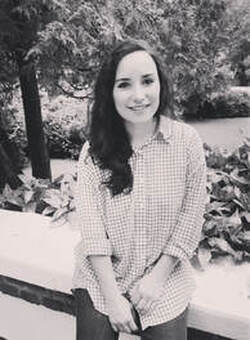
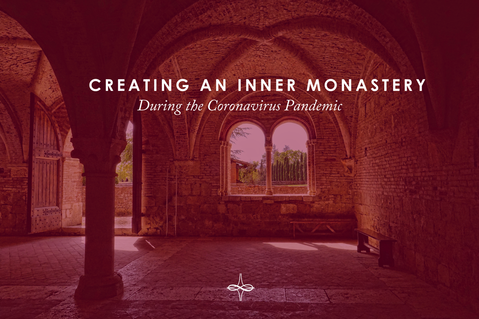
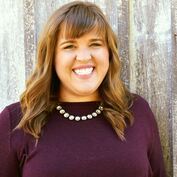
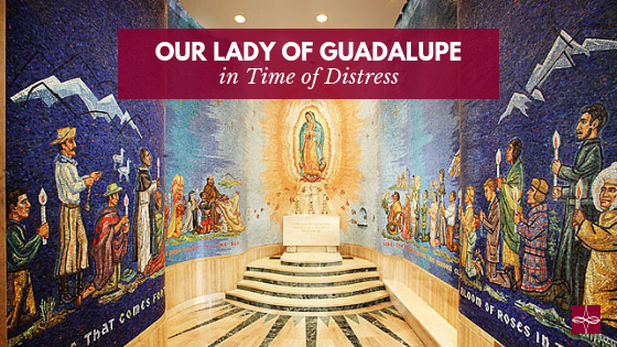
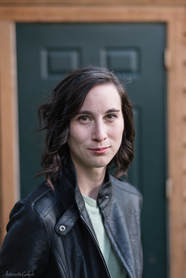
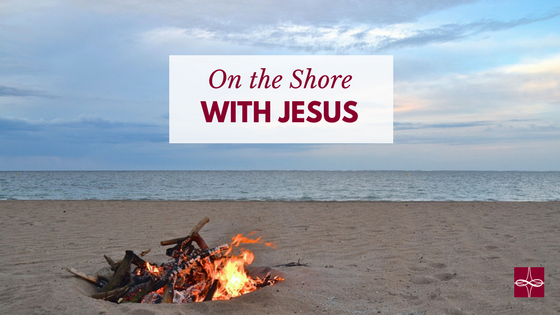

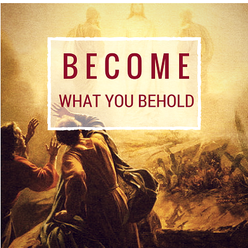
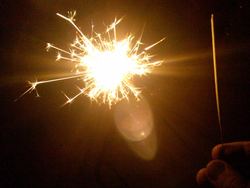
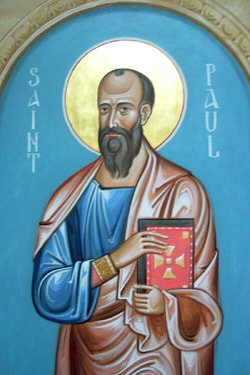
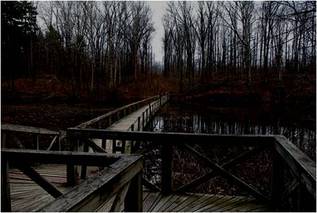
 RSS Feed
RSS Feed